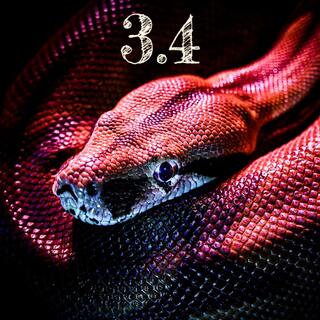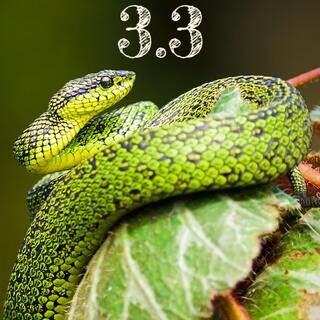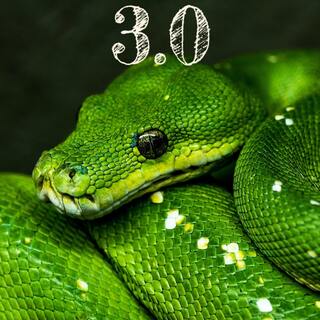☑ That's Good Enough
- What’s New in Python 3.4 - Part 1 Sun Apr 04 2021
- What’s New in Python 3.3 - More New Features Sun Mar 07 2021
- What’s New in Python 3.3 - New Features Sun Mar 07 2021
- What’s New in Python 3.2 Sun Feb 07 2021
- What’s New in Python 3.1 Mon Feb 01 2021
- What’s New in Python 3.0 Sun Jan 24 2021
- C++11: Library Changes: Pointers, Randoms, Wrappers and more Fri Apr 24 2015
- C++11: Library Changes: Threading, Tuples, Hashing and Regexes Mon Apr 13 2015
- C++11: Other language changes Sun Jan 19 2014
- C++11: Template changes Tue Nov 26 2013
April 2021

☑ What’s New in Python 3.4 - Part 1
In this series looking at features introduced by every version of Python 3, this one is the first of two covering release 3.4. We look at a universal install of the pip utility, improvements to handling codecs, and the addition of the asyncio and enum modules, among other things.
This is the 6th of the 36 articles that currently make up the “Python 3 Releases” series, the first of which was What’s New in Python 3.0.
Read article ( 28 minutes )
March 2021

☑ What’s New in Python 3.3 - More New Features
The second of my two articles covering features added in Python 3.3, this one talks about a large number of changes to the standard library, especially in network and OS modules. I also discuss implicit namespace packages, which are a bit niche but can be useful for maintaining large families of packages.
This is the 5th of the 36 articles that currently make up the “Python 3 Releases” series, the first of which was What’s New in Python 3.0.
Read article ( 40 minutes )

☑ What’s New in Python 3.3 - New Features
The fourth Python 3.x release brought another slew of great new features. So many, in fact, that I’ve split this release into two articles, of which this is the first. Highlights in this part include yield from expressions, mocking support in unittest and virtualenv suppport in the standard library.
This is the 4th of the 36 articles that currently make up the “Python 3 Releases” series, the first of which was What’s New in Python 3.0.
Read article ( 26 minutes )
February 2021

☑ What’s New in Python 3.2
Another installment in my look at all the new features added to Python in each 3.x release, this one covering 3.2. There’s a lot covered including the argparse module, support for futures, changes to the GIL implementation, SNI support in SSL/TLS, and much more besides. This is my longest article ever by far! If you’re puzzled why I’m looking at releases that are years old, check out the first post in the series.
This is the 3rd of the 36 articles that currently make up the “Python 3 Releases” series, the first of which was What’s New in Python 3.0.
Read article ( 48 minutes )

☑ What’s New in Python 3.1
This article continues to series looking at features added in each release of Python 3.x, with this one covering the move from 3.0 to 3.1. It includes the new contains OrderedDict and Counter, making modules executable as scripts, and marking unit tests as known failures. If you’re puzzled why I’m looking at releases that are years old, check out the first post in the series.
This is the 2nd of the 36 articles that currently make up the “Python 3 Releases” series, the first of which was What’s New in Python 3.0.
Read article ( 19 minutes )
January 2021

☑ What’s New in Python 3.0
I was slow to make the transition from Python 2 to 3 in the first place, and I never felt like I kept up properly with the new features. So I’m going to aim to do a series of articles looking at a different Python version in each and go through the new features added and catch myself up properly. This one addresses features added in Python 3.0 beyond those already in 2.6, including Unicode by default, type annotations, and exception chaining.
This is the 1st of the 36 articles that currently make up the “Python 3 Releases” series.
Read article ( 33 minutes )
April 2015

☑ C++11: Library Changes: Pointers, Randoms, Wrappers and more
I’ve finally started to look into the new features in C++11 and I thought it would be useful to jot down the highlights, for myself or anyone else who’s curious. Since there’s a lot of ground to cover, I’m going to look at each item in its own post — this is the second of the final two that cover what I feel to be the most important changes to the standard template library.
This is the 8th of the 8 articles that currently make up the “C++11 Features” series, the first of which was C++11: Move Semantics.
Read article ( 15 minutes )

☑ C++11: Library Changes: Threading, Tuples, Hashing and Regexes
I’ve finally started to look into the new features in C++11 and I thought it would be useful to jot down the highlights, for myself or anyone else who’s curious. Since there’s a lot of ground to cover, I’m going to look at each item in its own post — this is the first of the final two that cover what I feel to be the most important changes to the standard template library.
This is the 7th of the 8 articles that currently make up the “C++11 Features” series, the first of which was C++11: Move Semantics.
Read article ( 11 minutes )
January 2014

☑ C++11: Other language changes
I’ve finally started to look into the new features in C++11 and I thought it would be useful to jot down the highlights, for myself or anyone else who’s curious. Since there’s a lot of ground to cover, I’m going to look at each item in its own post — this one covers a miscellaneous set of language improvements which I haven’t yet discussed.
This is the 6th of the 8 articles that currently make up the “C++11 Features” series, the first of which was C++11: Move Semantics.
Read article ( 7 minutes )
November 2013

☑ C++11: Template changes
I’ve finally started to look into the new features in C++11 and I thought it would be useful to jot down the highlights, for myself or anyone else who’s curious. Since there’s a lot of ground to cover, I’m going to look at each item in its own post — this one covers improvements to template declaration and instantiation.
This is the 5th of the 8 articles that currently make up the “C++11 Features” series, the first of which was C++11: Move Semantics.
Read article ( 5 minutes )
